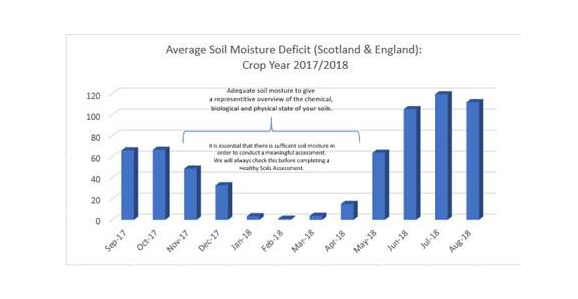Growers are urged to stringently manage pesticide applications and adhere to restrictions and measures such as buffer zones and application timings.
“However, as well as these initiatives, management of your soils also plays an important role in reducing water pollution,” points out Jess Farrant, agronomist with Hutchinsons.
“For example, the ‘Think Water’ campaign urges growers to manage the use of tramlines, gateways and pathways to reduce compaction.”
“We know that compaction produces a layer of soil within the profile which does not allow for the percolation of water. This means the infiltration of water into the soil takes longer and the volume of surface run-off is increased. This run-off can carry pesticides overland and into water sources, not only causing pollution, but also reducing the efficacy of residual chemistry.”
But growers should not only consider tramlines and other areas of heavy traffic as areas where compaction may be a concern, urges Ms Farrant.
Larger farms, less labour and machinery that lets us work fields all year around, have resulted in a culture of increasing and unnecessary cultivations – all of which lends itself to poor soil structure and health – compaction can be found anywhere in the field.”
“A number of the Hutchinsons Healthy Soils assessments conducted last season found this problem; one assessment carried out at a farm near Alnwick found compaction at 30cm preventing infiltration further through the soil profile. When it rained, the soil above this quickly reached saturation, and run-off was increased.”
The physical aspect of a Hutchinsons ‘Healthy Soils’ assessment identifies any structural issues within the soil. However, she points out the importance of having a healthy soils assessment at the right time.
“It’s important to note that taking soil samples during the summer when soils are generally dry will not permit a meaningful assessment of soil structure or earthworm populations.”
“The best time to assess the health of your soil is now, during the wetter autumn and winter months as this is when the soils are moist and biologically active, allowing for worm numbers etc to be measured.”
Ignore soil health at your peril says Ms Farrant. “Compaction will increase run-off and decrease rooting ability of crops increased run-off may result in pesticide residues being found in water and will also decrease the efficacy of residual herbicides.”




